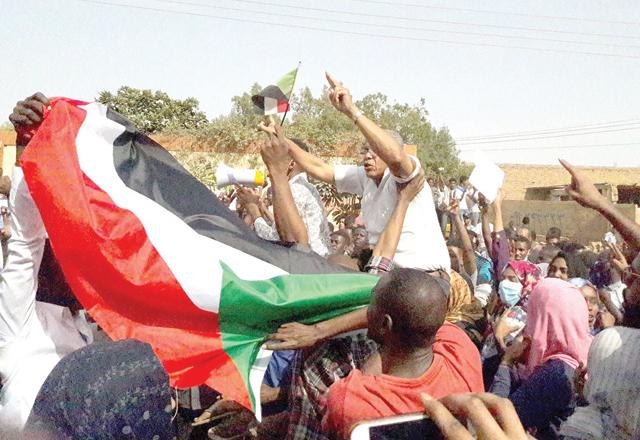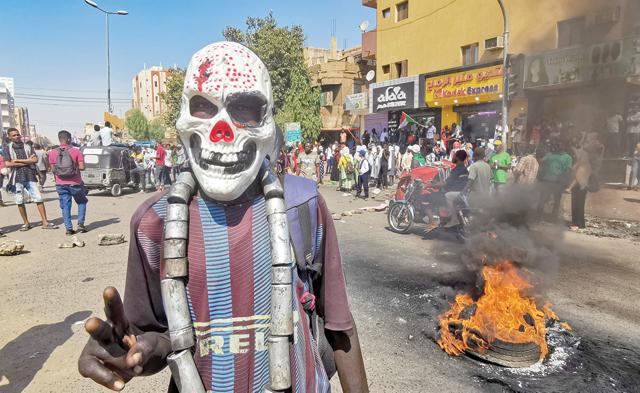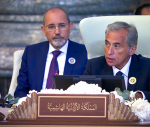You are here
Sudan police fire tear gas as protesters launch new rallies
By AFP - Jan 31,2019 - Last updated at Jan 31,2019

Sudanese protesters wave their national flag and chant slogans during an anti-government demonstration in the capital Khartoum's twin city of Omdurman on Thursday (AFP photo)
KHARTOUM — Sudanese police fired tear gas at crowds of demonstrators in the capital and other cities on Thursday, witnesses said, as fresh protests demanded an end to President Omar Al Bashir's three-decade rule.
Chanting "freedom, peace, justice" — the rallying cry of the protest movement that has rocked Sudan for weeks — demonstrators took to the streets in both Khartoum and its twin city Omdurman.
"Riot police are firing tear gas at protesters in north Khartoum but they are still demonstrating," a witness told AFP, declining to reveal his identity out of fear for his safety.
"The police is firing tear gas but we will not stop," said a demonstrator from north Khartoum.
In the capital's eastern neighbourhood of Burri — site of regular protests — demonstrators clapped, whistled and banged plastic water bottles, as some set tyres and tree trunks on fire, sending thick plumes of smoke into the sky, witnesses said.
Protesters also gathered in the Red Sea city of Port Sudan, in several villages in Jazeera State, south of the capital, and in the central town of Madani, witnesses said.
Witnesses said police fired tear gas after "many demonstrators gathered at the main bus station of Port Sudan".
Protesters in Madani, where several rallies have been staged since December, were also met with tear gas, witnesses said.
"The police are chasing us in streets and alleys. They are firing tear gas but we are still demonstrating," a protester said.
Bashir mocks campaigners
The Sudanese Professionals Association, which has headed the protest movement, has called for daily demonstrations but few have been reported in recent few days.
The rallies began in the farming town of Atbara on December 19 over the government's decision to triple the price of bread.
They quickly mushroomed into nationwide protests widely seen as the biggest threat to Bashir's rule since he took power in an Islamist-backed coup in 1989.
Officials say 30 people have died in violence related to the protests.
Human rights groups say children and medics have been among more than 40 people killed since December 19.
Anger has been mounting for years over deteriorating living conditions and growing economic hardship in the east African country.
Sudan's economic woes triggered mass protests in 2013 that were put down at the cost of dozens of deaths.
Veteran president Bashir has remained defiant, addressing loyalist counterdemonstrations and visiting regional allies to seek support.
Bashir at a rally on Thursday mocked his opponents' use of social media to mobilise protests against his rule.
"Changing the government or presidents cannot be done through WhatsApp or Facebook", Bashir told the crowd. "It can be done only through elections."
A top Sudanese general on Wednesday warned that the army will not let the country slip into turmoil amid the protests.
"We will not allow the Sudanese state to collapse or fall into chaos," army chief of staff Kamal Abdelmarouf told a meeting with top military officers in Khartoum.
Related Articles
KHARTOUM — Sudanese police fired tear gas at protesters defying a nationwide state of emergency on Thursday, with demonstrators rallying in
KHARTOUM — A Sudanese protester was shot dead Monday, medics said, during the latest march by thousands who continue to oppose a military co
KHARTOUM — Security forces fired tear gas Sunday as thousands rallied in Sudan's capital Khartoum and a neighbouring city, witnesses said, k
















